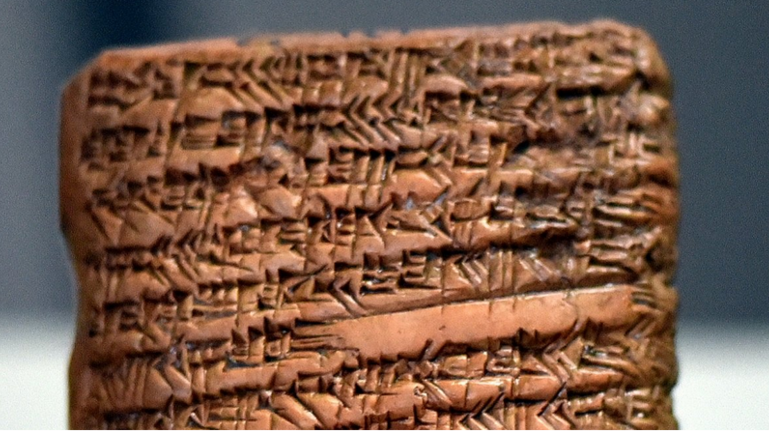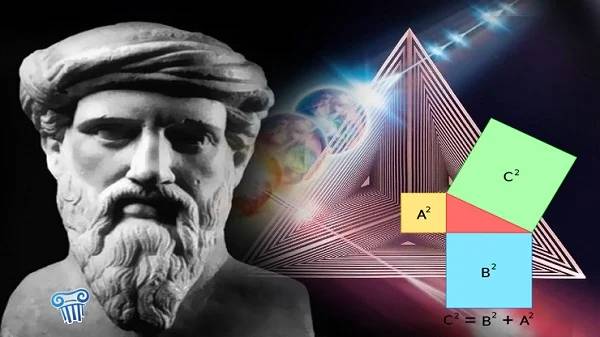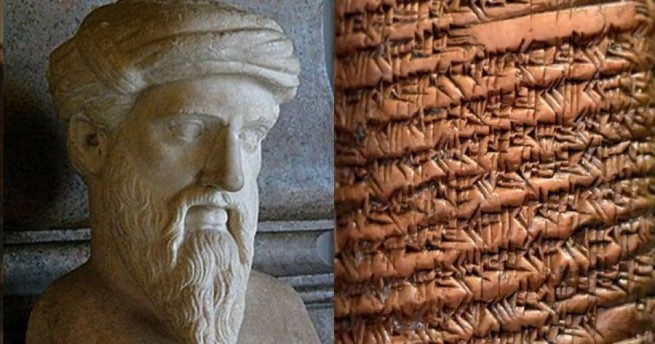Was Pythagoras the father of the theorem that bears his name? Who was the first to observe Halley’s comet? The answer may seem obvious to you, but it is not.
While paying tribute to the great scientists and their colleagues, it has been established that the system of naming great discoveries and even entire eras does not work on the basis of who actually “taught it first.”
For nearly four decades now, the famous “Stigler’s Law of Naming” has stated that “no scientific discovery is given the name of its discoverer”. No matter how strange it may sound, to date no one has canceled it. Perhaps because ultimately, as his “inspirator” himself says, in science – and not only – the main thing is not priority, but time and significant contribution.
Priority by “importance”
“Stigler’s Law” was formulated in 1980 by Stephen Stigler, a professor of statistics at the University of Chicago, in a scientific publication in honor of the famous sociologist Robert Merton, the founder of the science of sociology. “One of the many things that Merton did was to notice, more clearly than anyone else, that in science there is a lot of debate about priorities—you know, scientists who say I did it first, not so-and-so,” Mr. Stigler says.
“This phenomenon has been observed for a long time, for example, the dispute between Newton and Leibniz is well known about who first discovered calculus. This means, as Merton says, priority is a very great honor, something worth fighting for, and shows that in science there is a reward system that has nothing to do with the money or position one can achieve, but the place one will take place in history.”
In his famous article “Priorities of Scientific Discovery,” Robert Merton, looking back at the history of science, described a specific reward system, identifying three “levels” in it:
- on the first he placed those few scientists whose names are named for entire eras (for example, the “Newtonian era”),
- on the second – several more people who were called the “fathers-progenitors” of a certain field of science,
- on the third – thousands of people whose names are given to laws, theories, theorems, hypotheses.
As for the last level, the scientist even noted that in many cases the name does not coincide with the priority, giving relevant examples.
But we won’t go into details, because today we’ll talk about who discovered the Pythagorean theorem. As researchers have established, Pythagoras did not discover his great theorem; it was known 1000 years before his birth!

The name of the ancient Greek philosopher Pythagoras of Samos is known to everyone from school. It is believed that he came up with a multiplication table, which is called the “Pythagorean table,” as well as a theorem according to which the square of the hypotenuse is equal to the sum of the squares of the legs.
However, alas, some Archaeological finds (clay Babylonian tablets) indicate that ancient people knew these mathematical truths long before the birth of the sage, including the theorem. However, there is not a single original evidence that the author of the theorem is really Pythagoras. But why, in this case, are the table and theorem named after him?

Ancient artifacts – Babylonian tablets with the Pythagorean theorem
Although the theorem bears the name of an ancient Greek philosopher, there is a Babylonian tablet dating back to 1770 BC that uses the Pythagorean theorem to determine the length of the diagonal within a rectangle. Presumably it was created for training.
In addition, there is another ancient tablet, dated 1800–1600 BC, which depicts a square with signed triangles inside. The translation of the notation for the counting system used by the ancient Babylonians showed that mathematicians at that time already knew about the Pythagorean theorem. Mathematician Bruce Ratner reports this in his research. At a minimum, the Babylonians used this knowledge to determine the length of the diagonal of a rectangle.

So why is the theorem named after Pythagoras?
The ancient Greek Pythagoras of Samos was born in 570-490 BC. It follows that the theorem was known to mathematicians approximately 1000 years before his birth. But in fact there is nothing surprising in this. Ancient biographies contain many legends about the ancient Greek philosopher, which after thousands of years are difficult to separate from real facts.
According to the most common version, Pythagoras was born on the island of Samos. In his youth he traveled and studied a lot. According to some sources, he received knowledge from Egyptian priests, Chaldeans (Semitic tribes), magicians and even Zarathustra. Apparently, during this period of his life, Pythagoras learned about the theorem (which was later named after him), and since he taught the knowledge to his students, the name of the ancient mathematician “stuck” to the theorem.
“One of the most famous theorems in mathematics is the Pythagorean theorem. In fact, there is no evidence in the history of science directly linking it to Pythagoras, although it is believed that he probably proved it. However, Pythagoras was so important that he deserves the honor, so anyway, it’s nice that the theorem is named after him. Large spatial or temporal distance leads to inaccuracies. However, on the other hand, usually, if not almost always, the name assigned to a phenomenon or something important reflects the recognition of the work as a whole. And this is the main point”. “The misunderstanding does not mean that the people whose name is incorrectly named for the discovery do not deserve this honor, they simply deserve it for something else,” Mr. Stigler emphasizes.

Pythagoreans, that is, students of the school of the ancient philosopher, attributed to Pythagoras many discoveries that actually did not belong to him. Even those discoveries that the Pythagoreans themselves made were still attributed to Pythagoras.
Unfortunately not a single one the original work of Pythagoras himself has not survived. All information about him and his discoveries was conveyed precisely by his followers. Therefore, it is quite natural that the theorem he taught was also attributed to him. Is it fair to call her after the ancient Greek philosopher, mathematician, music theorist and mystic? Rather yes than no. The same applies to the Pythagorean table.







More Stories
Why cats don't go to your hands and don't like to be petted
When does old age begin? The answer to this question changes with age.
Association of Professional Nutritionists to be created in Greece